Home>diy>Building & Construction>How Do You Get A Job In Construction


Building & Construction
How Do You Get A Job In Construction
Modified: January 24, 2024
Looking to start a career in building construction? Learn how to get a job in construction and kickstart your journey in this lucrative industry.
(Many of the links in this article redirect to a specific reviewed product. Your purchase of these products through affiliate links helps to generate commission for Storables.com, at no extra cost. Learn more)
Introduction
Construction is a booming industry that offers a wide range of employment opportunities. From skilled tradespeople to project managers, there is a demand for individuals with expertise in building construction.
Getting a job in construction requires a combination of education, practical experience, and networking skills. In this article, we will explore the different steps you can take to kickstart your career in the construction industry.
Key Takeaways:
- Building a successful career in construction requires a combination of education, hands-on experience, and a commitment to continuous learning. From specialized training to networking, the industry offers diverse paths to success.
- Prioritizing safety, embracing technology, and seeking mentorship are essential for advancing in the construction industry. By honing technical skills and demonstrating leadership, individuals can achieve long-term success and growth.
Read more: How To Get A Job In Construction
Education and Training Requirements
While it is possible to enter the construction industry without formal education, having a degree or certification can greatly enhance your job prospects. Many trade schools and community colleges offer programs in construction management, construction technology, or specific trades like carpentry or electrical work. These programs provide a solid foundation of knowledge and skills necessary for a successful career in construction.
In addition to formal education, on-the-job training is crucial in the construction industry. Apprenticeships and internships allow you to gain hands-on experience under the guidance of experienced professionals. This practical training not only enhances your skills but also helps you develop a network of connections within the industry.
Gaining Experience
Experience is highly valued in the construction industry. To build your experience, consider volunteering for local community projects or joining construction-related clubs and organizations. This will allow you to learn from experienced professionals and showcase your commitment and dedication to potential employers.
Another way to gain experience is by starting at an entry-level position. Construction companies often hire laborers to assist with various tasks on construction sites. While these roles may not be glamorous, they provide valuable exposure to different aspects of the construction process and allow you to gradually work your way up the career ladder.
Building a Strong Network
Networking is essential in any industry, and construction is no exception. Building connections with professionals already working in the field can open doors to job opportunities and provide valuable advice and guidance.
Attend industry events, job fairs, and trade shows to meet people within the construction industry. Join professional organizations, such as the Associated General Contractors (AGC) or the National Association of Home Builders (NAHB), to expand your network and stay updated on industry trends.
Utilize online platforms like LinkedIn to connect with professionals and join industry-specific groups. Building relationships with individuals who can vouch for your skills and work ethic can significantly increase your chances of finding employment in the construction industry.
Key Takeaways:
- Building a successful career in construction requires a combination of education, hands-on experience, and a commitment to continuous learning. From specialized training to networking, the industry offers diverse paths to success.
- Prioritizing safety, embracing technology, and seeking mentorship are essential for advancing in the construction industry. By honing technical skills and demonstrating leadership, individuals can achieve long-term success and growth.
Read more: How To Get A Job In Construction
Education and Training Requirements
When pursuing a job in construction, having the right education and training is essential. While a formal degree is not always required, it can greatly enhance your chances of getting hired and provide a solid foundation of knowledge. Many trade schools, community colleges, and technical institutes offer programs in construction management, construction technology, or specific trades like carpentry, electrical work, plumbing, or HVAC (heating, ventilation, and air conditioning).
These programs cover a wide range of topics including blueprint reading, construction materials, building codes and regulations, project management, and safety procedures. They combine classroom instruction with hands-on training, giving students the opportunity to apply what they have learned in real-world scenarios.
In addition to formal education, on-the-job training is crucial for gaining practical experience in the construction industry. Many construction companies offer apprenticeship programs, which allow individuals to learn and work under the guidance of experienced professionals. Apprenticeships typically last for several years and involve a combination of on-site training and classroom instruction.
During an apprenticeship, individuals have the opportunity to develop their skills in a specific trade, such as carpentry, electrical work, or plumbing. They learn how to use tools and equipment correctly, interpret blueprints, follow safety protocols, and perform tasks specific to their chosen trade. Apprenticeships provide a valuable foundation for a successful career in construction and often lead to higher-level positions.
For those who prefer a more hands-on approach, vocational training programs can be a great option. These programs focus on specific trades and provide intensive training in a shorter period of time. Students receive practical instruction on how to use tools and equipment, read blueprints, and complete various construction tasks. Vocational training programs are designed to prepare individuals for entry-level positions in the construction industry.
Additionally, obtaining industry certifications can also boost your credentials and make you more marketable to employers. Organizations such as the National Center for Construction Education and Research (NCCER) offer certifications in various construction trades. These certifications validate your proficiency in specific skills and demonstrate your commitment to professional development.
Lastly, it’s important to stay updated on the latest technologies and techniques in the construction industry. Attend workshops, seminars, and industry conferences to expand your knowledge and network with professionals in the field.
By investing in education and training, you demonstrate your dedication to the construction industry and increase your chances of securing a rewarding job in the field.
Gaining Experience
Experience is a vital component of building a successful career in the construction industry. While education and training provide a solid foundation, practical hands-on experience is what truly sets candidates apart. Here are some strategies for gaining valuable experience in the construction field:
1. Volunteer for Community Projects: One way to gain experience and contribute to the community is to volunteer for construction projects organized by local charities or nonprofit organizations. These projects provide opportunities to work alongside experienced professionals while helping to build or renovate structures for those in need.
2. Join Construction-Related Clubs and Organizations: Look for clubs or organizations in your area that focus on construction or related trades. Joining these groups allows you to connect with industry professionals and learn from their experiences. You may also have the chance to participate in group projects or workshops to further hone your skills.
3. Start at an Entry-Level Position: Many construction companies hire entry-level laborers to assist with various tasks on construction sites. While these positions may be physically demanding, they provide invaluable exposure to different aspects of the construction process. Starting at an entry-level position allows you to observe and learn from seasoned professionals and gradually transition into higher-level roles.
4. Seek Apprenticeships or Internships: Apprenticeships and internships are excellent avenues for gaining practical experience. These programs provide structured, hands-on training under the guidance of experienced professionals. Whether it’s through a union-sponsored apprenticeship or an internship offered by a construction company, these opportunities allow you to apply classroom knowledge in real-world scenarios while receiving mentorship from industry experts.
5. Network with Professionals: Building relationships with professionals already working in the construction industry can open doors to job opportunities and provide insights into the field. Attend industry-specific events, trade shows, and conferences to meet and connect with construction professionals. Networking platforms like LinkedIn also provide opportunities to engage with industry leaders and join relevant groups where you can learn, share insights, and establish connections.
6. Embrace Lifelong Learning: Construction is an ever-evolving industry, with new technologies, techniques, and materials emerging constantly. Stay updated on the latest industry trends by attending workshops, seminars, and training programs. Continuously expanding your knowledge and skills will make you a more competitive candidate and open doors to advanced positions in the future.
7. Document Your Experience: As you gain experience, keep track of your accomplishments, projects you’ve worked on, and the skills you’ve developed. Create a portfolio or resume that highlights your hands-on experience and demonstrates your abilities to potential employers.
By actively seeking opportunities to gain hands-on experience and continuously developing your skills, you can position yourself as a valuable asset to construction employers and increase your chances of scoring the construction job of your dreams.
Building a Strong Network
In the construction industry, building a strong professional network is crucial for career advancement and uncovering new job opportunities. A robust network can provide you with valuable connections, industry insights, and access to a wider range of construction projects. Here are some strategies for building and leveraging your network in the construction field:
1. Attend Industry Events: Make it a priority to attend industry-specific events such as trade shows, conferences, and seminars. These gatherings bring together professionals from various sectors of the construction industry, providing an opportunity to meet and connect with potential employers, colleagues, and industry experts. Engage in conversations, ask questions, and exchange contact information to start building meaningful connections.
2. Join Professional Organizations: Become a member of professional organizations related to construction, such as the Associated General Contractors (AGC), National Association of Home Builders (NAHB), or trade-specific associations like the Electrical Contractors Association (ECA) or Plumbing and Heating Contractors Association (PHCA). These organizations provide networking events, educational resources, and industry updates that can help you connect with like-minded professionals and stay abreast of industry trends.
3. Utilize Online Platforms: Leverage online platforms to expand your network and connect with professionals in the construction industry. LinkedIn is a particularly valuable tool, allowing you to create a professional profile, join industry-specific groups, and connect with individuals in your field. Engage in discussions, share insights, and build relationships that can lead to potential job opportunities or recommendations.
4. Volunteer or Get Involved in Construction-related Charities: Participate in community projects or initiatives related to construction. Volunteering your time and skills not only gives back to the community but also allows you to network with other professionals who share the same passion for construction. Building connections in a non-professional setting can often lead to stronger relationships and potential job opportunities in the future.
5. Build Strong Relationships on Construction Sites: When working on construction projects, take the time to establish strong relationships with coworkers, supervisors, and subcontractors. Building mutual respect and trust can lead to referrals and recommendations for future employment opportunities. Networking within your immediate work environment can often open doors to other opportunities within the industry.
6. Attend Continuing Education and Training Programs: Participating in professional development programs, workshops, and seminars not only enhances your knowledge and skills but also provides an opportunity to network with other professionals in your field. Engage in discussions, exchange ideas, and maintain contact with individuals you meet during these events.
7. Stay in Touch: Once you have established a network of connections, it’s important to nurture and maintain those relationships. Regularly reach out to your contacts, share industry updates, and offer your assistance or expertise when needed. Remember, networking is not just about what others can do for you but also about cultivating mutually beneficial relationships.
Building a strong professional network takes time and effort, but the rewards can be invaluable. By actively connecting with others in the construction industry, you increase your visibility, expand your opportunities, and position yourself as a trusted professional within the field.
Networking is key in the construction industry. Attend industry events, join professional organizations, and connect with people in the field to increase your chances of finding job opportunities.
Applying for Construction Jobs
When it comes to applying for construction jobs, there are several steps you can take to increase your chances of success. From crafting a tailored resume to acing the interview, here are some essential tips for navigating the application process:
1. Research and Identify Job Opportunities: Start by researching and identifying construction companies or organizations that align with your interests and goals. Visit their websites, review job boards, and keep an eye on industry-specific publications for job postings. Make a list of the positions that interest you and match your skill set.
2. Tailor Your Resume: Customize your resume to highlight your relevant skills, experience, and achievements. Emphasize any construction-related education, certifications, or specializations you have obtained. Include keywords and phrases from the job description to optimize your resume for applicant tracking systems (ATS) that companies may use to screen applications.
3. Craft a Compelling Cover Letter: Write a well-crafted cover letter that showcases your passion for the construction industry and specifically addresses the requirements of the job you are applying for. Use the cover letter to tell a story about your experience and how it aligns with the company’s values and goals.
4. Showcase your Portfolio: If you have a portfolio or examples of your previous construction work, consider including it as part of your application. This can be especially valuable for positions that require visual representation of your skills, such as architecture or design roles.
5. Follow Application Instructions: Pay close attention to the application instructions provided by the employer. They may require additional documents or ask for specific information to be submitted in a certain format. Following these instructions demonstrates your attention to detail and professionalism.
6. Prepare for the Interview: Research the company’s background, current projects, and any recent news to familiarize yourself with their work. Practice common interview questions and prepare examples of how your skills and experience align with the job requirements. Dress professionally and arrive early for the interview.
7. Showcase Your Team Player Mentality: Construction jobs often require collaboration and teamwork. During the interview, highlight instances where you worked successfully as part of a team, your ability to communicate effectively, and your problem-solving skills.
8. Highlight Safety Experience: Safety is a significant concern in the construction industry. If you have any previous safety training or certifications, be sure to mention them during the application process and interview. Employers prioritize candidates who prioritize safety on the job site.
9. Ask Thoughtful Questions: Towards the end of the interview, ask insightful questions about the company, the team you will be working with, or specific projects. This shows your genuine interest in the role and can leave a positive impression on the interviewer.
10. Follow Up: After the interview, send a thank-you email or note to express your gratitude for the opportunity. This small gesture of appreciation can make you memorable and show your continued interest in the position.
Remember, the construction industry is highly competitive, so it’s important to put your best foot forward during the application process. By tailoring your application materials, showcasing your experience, and presenting yourself professionally, you can increase your chances of securing a rewarding construction job.
Resume and Cover Letter Tips
When it comes to applying for construction jobs, a well-crafted resume and cover letter can make a significant difference in capturing the attention of employers. Here are some essential tips to help you create a standout resume and cover letter:
1. Customize for Each Job: Tailor your resume and cover letter to match the specific requirements and qualifications outlined in the job posting. Highlight relevant skills, experiences, and achievements that directly relate to the role you’re applying for.
2. Use a Professional Design: Ensure that your resume is clean, organized, and easy to read. Use a professional font, appropriate headings, and sufficient white space. Avoid excessive colors or graphics that may distract from the content.
3. Include Contact Information: Include your name, phone number, email address, and LinkedIn profile (if applicable) at the top of your resume. This information should be easily accessible to potential employers.
4. Craft a Summary Statement: Create a concise summary statement at the beginning of your resume that highlights your skills, experiences, and career objectives. This section should grab the attention of the reader and give them a quick overview of your qualifications.
5. Highlight Relevant Skills: In the skills section of your resume, include both hard skills (e.g., knowledge of specific tools, techniques, or software) and soft skills (e.g., teamwork, communication, problem-solving). Emphasize skills that are directly relevant to the construction industry.
6. Showcase Your Experience: In the work experience section, provide detailed bullet points that highlight your accomplishments and responsibilities in previous roles. Quantify your achievements whenever possible to demonstrate the impact of your work (e.g., “Completed 10 construction projects within budget and ahead of schedule”).
7. Demonstrate Your Education and Training: Include your educational background, relevant certifications, and any specialized training you have completed. List any construction-related coursework or apprenticeship programs that you have participated in.
8. Proofread for Errors: Thoroughly review your resume and cover letter to eliminate any spelling or grammatical errors. Ask a trusted friend or colleague to also proofread them for you. Mistakes can make a negative impression on potential employers.
9. Keep Your Cover Letter Concise: Ensure that your cover letter is brief and to the point. Use it as an opportunity to introduce yourself, express your interest in the position, and highlight key qualifications. Avoid repeating information from your resume.
10. Show Enthusiasm: Use your cover letter to demonstrate your passion for the construction industry and the specific job you’re applying for. Explain why you are interested in the company and how your skills and experiences align with their goals.
11. Use Action Verbs: When describing your experiences and accomplishments in both your resume and cover letter, use strong action verbs to make your statements more dynamic. This helps demonstrate your proactive approach and the impact you made in previous positions.
12. Follow Submission Guidelines: Make sure to follow any specific instructions provided by the employer regarding resume and cover letter submission. Pay attention to file format requirements and any additional documents they may request.
Remember, your resume and cover letter serve as a representation of your skills, qualifications, and professionalism. By customizing them for each job, showcasing your relevant experience, and ensuring they are error-free, you increase your chances of making a positive impression on potential employers in the construction industry.
Interview Preparation
Preparing for a construction job interview is essential to showcase your skills, experience, and fit for the position. Here are some key tips to help you excel in your interview:
1. Research the Company: Take the time to research the company you’re interviewing with. Familiarize yourself with their projects, clients, and values. Understanding the company’s culture and goals will allow you to tailor your answers to align with their objectives.
2. Review the Job Description: Study the job description carefully to identify the key requirements and responsibilities of the position. Prepare specific examples from your experience that demonstrate how your skills and accomplishments align with those requirements.
3. Practice Common Interview Questions: Prepare responses to common interview questions, such as “Tell me about yourself,” “Why are you interested in this position?” and “Describe a challenging situation you faced on a construction project and how you resolved it.” Practice your answers to ensure they are concise, clear, and highlight your relevant experiences.
4. Prepare Examples: Prepare examples from previous projects or work experiences that highlight your problem-solving skills, teamwork abilities, and ability to meet project deadlines. Use the STAR method (Situation, Task, Action, Result) to structure your responses and provide specific details.
5. Showcase Your Technical Knowledge: Construction jobs often require technical expertise. Be prepared to discuss your familiarity with construction materials, tools, equipment, and relevant software. Demonstrating your technical knowledge will show your capability to handle the job responsibilities effectively.
6. Dress Professionally: Dress appropriately for the interview, wearing professional attire that reflects the company’s dress code. A clean, well-groomed appearance demonstrates your professionalism and respect for the interview process.
7. Prepare Questions to Ask: Prepare thoughtful questions to ask the interviewer. This shows your genuine interest in the role and the company. Ask about future projects, team dynamics, opportunities for advancement, or any specific challenges the construction team may be facing.
8. Showcase Your Safety Knowledge: Safety is a critical aspect of construction jobs. Be prepared to discuss your understanding of safety protocols and regulations. Highlight any safety training or certifications you have obtained to demonstrate your commitment to maintaining a safe working environment.
9. Display Your Communication and Teamwork Skills: Effectively communicating and working as part of a team is crucial in the construction industry. Prepare examples that showcase your ability to collaborate with others, resolve conflicts, and communicate clearly and effectively. These skills are highly valued by employers.
10. Practice Good Body Language: During the interview, maintain good eye contact, sit up straight, and convey confidence through your body language. A firm handshake and a friendly smile can go a long way in making a positive impression.
11. Research Current Industry Trends: Stay up to date with the latest trends, technologies, and regulations in the construction industry. This shows your passion for the field and your commitment to continuous learning.
12. Follow-Up with a Thank-You Note: After the interview, send a thank-you note or email to express your appreciation for the opportunity to interview. Use this as an opportunity to reinforce your interest in the position and reiterate your qualifications.
By thoroughly preparing for your construction job interview, you can confidently showcase your skills, experience, and enthusiasm for the position. Good preparation will help you stand out from other candidates and increase your chances of securing the job.
Important Skills for Construction Jobs
Construction jobs require a diverse range of skills to ensure successful project completion. Whether you are interested in a trade-specific role or a construction management position, here are some important skills that are highly valued in the construction industry:
1. Technical Knowledge: A strong understanding of construction materials, tools, equipment, and techniques is essential. Proficiency in reading blueprints, interpreting technical drawings, and understanding building codes and regulations is crucial for ensuring construction projects are completed accurately and safely.
2. Attention to Detail: Construction projects involve intricate details that must be carefully managed. Paying close attention to measurements, specifications, and quality control is vital to ensure accuracy and minimize errors. This skill is important for both tradespeople and project managers.
3. Problem-Solving Abilities: The construction industry often presents unexpected challenges that require quick thinking and problem-solving skills. The ability to think creatively, identify solutions, and adapt to changing circumstances is highly valued. Construction professionals need to be able to handle unforeseen issues efficiently and effectively.
4. Time Management and Organization: Construction projects are often governed by strict deadlines. Construction professionals must be able to prioritize tasks, allocate resources, and manage time effectively to ensure that projects are completed on schedule. Good organizational skills are critical for coordinating various aspects of a construction project.
5. Communication Skills: Clear and effective communication is essential in the construction industry. Construction professionals need to be able to communicate instructions, expectations, and project updates to team members, subcontractors, and clients. Strong communication skills facilitate collaboration, prevent misunderstandings, and help maintain a productive work environment.
6. Teamwork and Collaboration: Construction projects involve multiple individuals and trades working together. The ability to work well in a team, collaborate with others, and communicate effectively is crucial. Construction professionals must be able to collaborate with different stakeholders, resolve conflicts, and foster a positive and productive work environment.
7. Leadership and Management: Construction projects often require individuals with strong leadership and management skills. Construction managers need to coordinate and supervise teams, ensure that work is done efficiently, and make strategic decisions to address project challenges. Leadership skills are also important for tradespeople who may need to take on supervisory roles on specific tasks.
8. Problem-Solving Abilities: The construction industry often presents unexpected challenges that require quick thinking and problem-solving skills. The ability to think creatively, identify solutions, and adapt to changing circumstances is highly valued. Construction professionals need to be able to handle unforeseen issues efficiently and effectively.
9. Safety Consciousness: Safety is of paramount importance in the construction industry. All construction professionals must prioritize safety protocols and adhere to strict safety regulations. Being vigilant, following safety guidelines, and promoting a culture of safety is essential to protect oneself and others on construction sites.
10. Flexibility and Adaptability: Construction projects are dynamic and can change rapidly. Being flexible and adaptable allows construction professionals to adjust to unexpected circumstances, changes in project scope, or shifts in scheduling. Adapting to new challenges and finding alternative solutions is crucial to maintaining project momentum.
11. Physical Stamina and Endurance: Construction work often involves physically demanding tasks, such as lifting heavy materials, operating machinery, and working in challenging environments. Having the physical stamina and endurance to handle the demands of the job is important to ensure productivity and safety on construction sites.
12. Continuous Learning: The construction industry evolves rapidly, with new technologies, materials, and techniques emerging regularly. Construction professionals must be committed to continuous learning to stay up to date with industry advancements. Being open to learning new skills and acquiring knowledge ensures professional growth and enhances career prospects.
Developing and honing these skills will not only make you a valuable asset to construction employers but also contribute to your personal and professional growth within the construction industry.
Safety in Construction
Safety is of paramount importance in the construction industry. Construction sites can be hazardous environments, with various risks and potential dangers present. Prioritizing safety is essential to protect the well-being of workers, prevent accidents, and ensure the successful completion of construction projects. Here are some key aspects of safety in construction:
1. Safety Training and Education: Proper safety training is crucial for all construction employees. Workers should receive thorough training on hazard recognition, proper use of personal protective equipment (PPE), emergency procedures, equipment operation, and safe work practices. Regular safety meetings and workshops should be conducted to reinforce best practices and provide updates on new safety regulations.
2. Job Hazard Analysis: Before starting any construction project, a comprehensive job hazard analysis should be conducted. This involves identifying potential hazards, assessing the risks associated with each hazard, and implementing measures to eliminate or control those risks. By systematically addressing potential hazards, projects can be carried out with a greater focus on safety.
3. Personal Protective Equipment (PPE): Proper use of personal protective equipment is essential on construction sites. This may include hard hats, safety goggles, ear protection, gloves, high-visibility clothing, and respiratory protection, depending on the specific requirements of the job. Ensuring that workers have access to and consistently use the appropriate PPE will help minimize the risk of injury.
4. Fall Protection: Falls are a leading cause of injuries in the construction industry. Implementing fall protection measures, such as guardrails, safety nets, and personal fall arrest systems, is critical when working at heights. Adequate training on fall prevention and the proper use of fall protection equipment should be provided to workers.
5. Proper Equipment Use and Maintenance: Ensuring that all equipment is used correctly and well-maintained is essential for safety. Regular inspections and maintenance should be conducted to identify any equipment defects or malfunctions that could pose a threat. Following manufacturer’s guidelines and providing training on equipment operation and maintenance can help prevent accidents and injuries.
6. Emergency Preparedness: Every construction site should have a detailed emergency response plan in place. This should include procedures for handling accidents, fires, severe weather events, and other emergencies. Adequate first aid supplies, fire extinguishers, and evacuation routes should be readily accessible and regularly reviewed with all workers.
7. Hazard Communication: Effective communication about potential hazards is critical on construction sites. Labels, signs, and other forms of communication should be used to alert workers of potential dangers and provide instructions for safe work practices. Regular safety briefings and toolbox talks should be conducted to ensure that all workers are aware of potential hazards and know how to mitigate risks.
8. Promoting a Safety Culture: Safety should be a top priority and an integral part of the company culture. Employers should create an environment where safety is encouraged, and workers are empowered to report unsafe conditions or behaviors without fear of reprisal. Regular safety audits and inspections should be conducted to identify and address any potential safety issues.
9. Regular Training and Continuing Education: Safety practices and regulations are constantly evolving. Regular training programs and continuing education opportunities should be provided to keep workers up to date with the latest safety standards and best practices. Staying informed of new safety technologies and advancements can help reduce the risk of accidents and create a safer work environment.
10. Partnerships and Collaborations: Employers in the construction industry should collaborate with industry organizations and government agencies to stay informed about new safety regulations and initiatives. Participating in safety groups, sharing best practices, and learning from others in the industry can help improve safety standards collectively.
Safety should always be the top priority in construction. By implementing comprehensive safety measures, providing proper training, and continuously prioritizing safety protocols, employers and workers can create a work environment that minimizes risks and protects the well-being of everyone involved.
Advancement in Construction Careers
The construction industry offers numerous opportunities for career advancement and professional growth. Whether you are just starting your career or already have experience in the field, here are some strategies to help you advance in your construction career:
1. Continual Learning and Skill Development: The construction industry is constantly evolving, with new technologies, materials, and techniques emerging. Stay updated with industry trends through seminars, workshops, and training programs. Invest in acquiring new skills and certifications to enhance your expertise and make yourself more marketable in the industry.
2. Specialize in a Niche Area: Consider specializing in a specific area of construction to become an expert in that field. This could include areas like sustainable construction, historic restoration, or using innovative construction methods. By developing specialized knowledge, you can position yourself as a valuable asset in the industry and increase your opportunities for advancement.
3. Seek Leadership Opportunities: Take on leadership roles whenever possible to demonstrate your ability to manage and lead construction projects. This can include being a foreman, project manager, or site supervisor. Show your proactive approach, decision-making skills, and ability to handle responsibility effectively. Leaders in the construction industry are often given greater responsibilities and opportunities for growth.
4. Network and Build Connections: Building a strong professional network is crucial for career advancement. Attend industry events, join professional organizations, and connect with colleagues and industry leaders. Leverage your network to learn about job opportunities, industry trends, and potential mentorship or guidance.
5. Pursue Higher Education: Consider pursuing higher education degrees in construction management, engineering, architecture, or related fields. Advanced degrees can open doors to higher-level positions and increase your earning potential. Look for programs that offer industry connections and internships to gain practical experience while studying.
6. Demonstrate Strong Performance: Consistently deliver high-quality work, meet project deadlines, and exceed expectations. Show initiative, take ownership of your work, and look for opportunities to go above and beyond. A strong work ethic and a track record of success can help you stand out and advance in your career.
7. Seek Mentorship: Find experienced professionals in the construction industry who can provide guidance and support. Seek out mentors who can share their knowledge, offer advice, and help you navigate your career path. Mentorship can provide valuable insights, professional connections, and opportunities for personal and career development.
8. Embrace Technology: Stay up to date with the latest construction technology trends and tools. Develop skills in using building information modeling (BIM) software, drones for surveying, or mobile applications for project management. Understanding and embracing technology will make you a valuable asset in a rapidly evolving industry.
9. Showcase Leadership and Soft Skills: In addition to technical expertise, strong leadership and soft skills are essential for advancement. Develop your communication, problem-solving, and decision-making abilities. Demonstrate your ability to work collaboratively, manage teams effectively, and navigate complex situations. These skills will set you apart as a well-rounded construction professional.
10. Consider Entrepreneurship: If you have the necessary skills and experience, starting your own construction business can provide significant opportunities for advancement. Entrepreneurship allows you to take on challenging projects, shape your own career path, and potentially enjoy greater financial rewards. However, be prepared for the additional responsibilities, risks, and demands of running a business.
Advancing in a construction career requires a combination of continuous learning, networking, leadership development, and a commitment to excellence. By actively seeking growth opportunities, continually improving your skills, and positioning yourself as a valuable asset, you can achieve long-term success and advancement in the dynamic field of construction.
Read more: How To Bid For Construction Jobs
Conclusion
The construction industry offers a wide range of career opportunities for individuals with a passion for building and creating. Whether you are interested in working with your hands as a skilled tradesperson, managing projects as a construction manager, or specializing in a niche area of construction, there are multiple paths to success in this field.
To embark on a successful construction career, it is important to pursue the right education and training. Trade schools, community colleges, and vocational programs can provide the necessary knowledge and hands-on experience. Apprenticeships and internships offer a valuable opportunity to learn from experienced professionals while honing your skills in a specific trade.
Gaining experience through volunteer work, entry-level positions, and involvement in construction-related organizations helps you develop your skills, build your network, and showcase your dedication to the industry.
When applying for construction jobs, it is crucial to craft a customized resume and cover letter that highlight your relevant skills and experiences. Interview preparation plays a vital role in leaving a lasting impression on potential employers. Researching the company, practicing common interview questions, and showcasing your technical knowledge and problem-solving abilities demonstrate your commitment to your craft and the construction industry.
Important skills for success in construction include technical knowledge, attention to detail, problem-solving abilities, time management, communication skills, teamwork, leadership, and a strong commitment to safety.
Advancement in construction careers is possible through continual learning and skill development, specializing in a niche area, seeking leadership opportunities, networking, pursuing higher education, demonstrating strong performance, seeking mentorship, embracing technology, and showcasing leadership and soft skills.
In conclusion, a career in construction offers numerous opportunities for growth, learning, and fulfillment. By combining a strong foundation of education, practical experience, and the right skills, you can build a successful and rewarding career in the construction industry. Embrace the challenges, stay updated with industry advancements, and strive for excellence as you contribute to the development of the built environment.
Frequently Asked Questions about How Do You Get A Job In Construction
Was this page helpful?
At Storables.com, we guarantee accurate and reliable information. Our content, validated by Expert Board Contributors, is crafted following stringent Editorial Policies. We're committed to providing you with well-researched, expert-backed insights for all your informational needs.
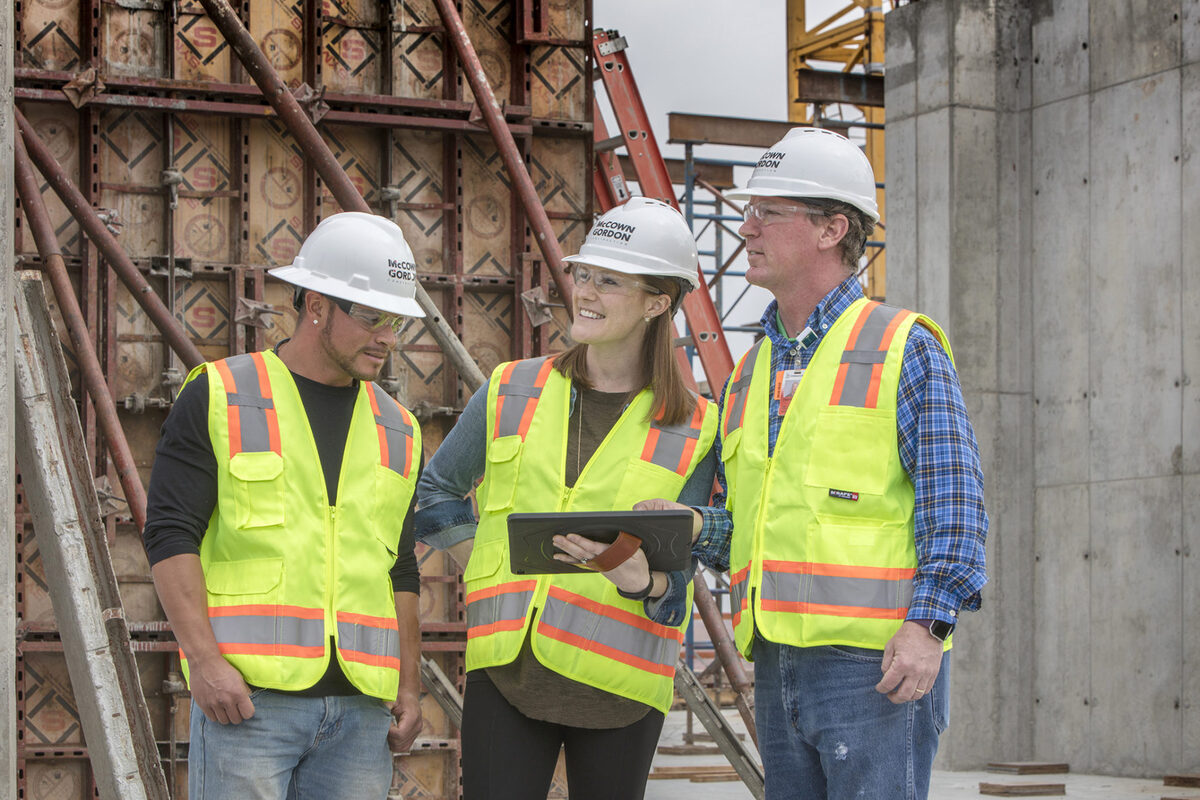


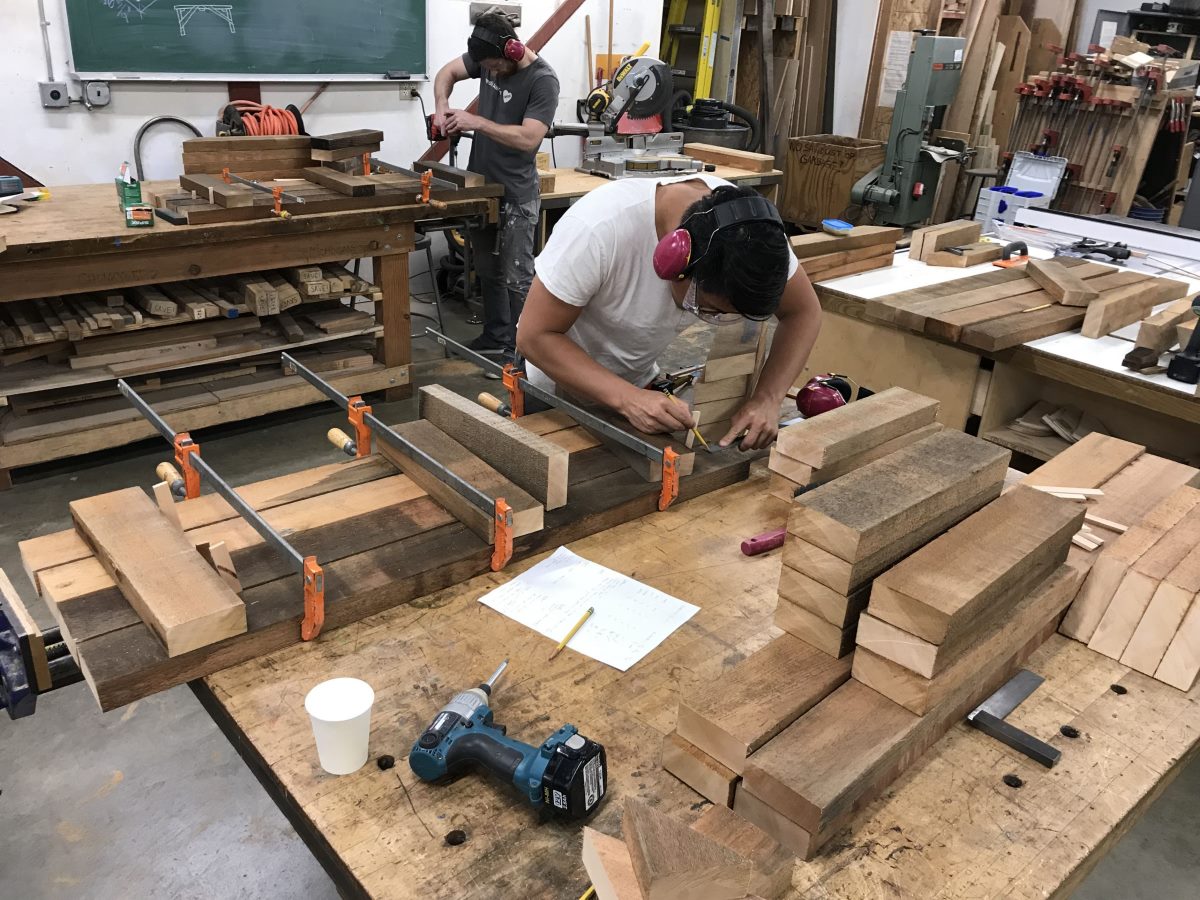
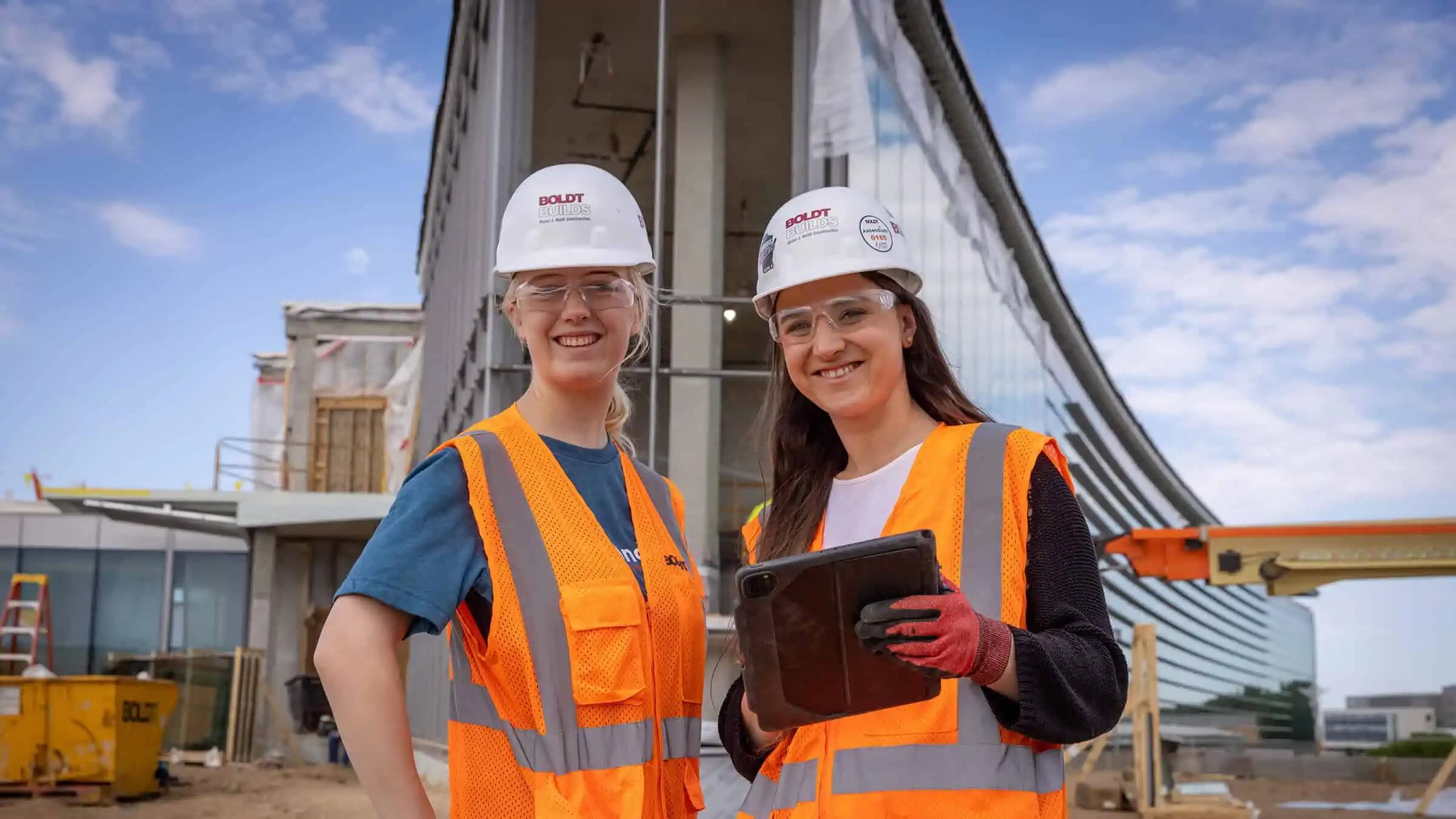
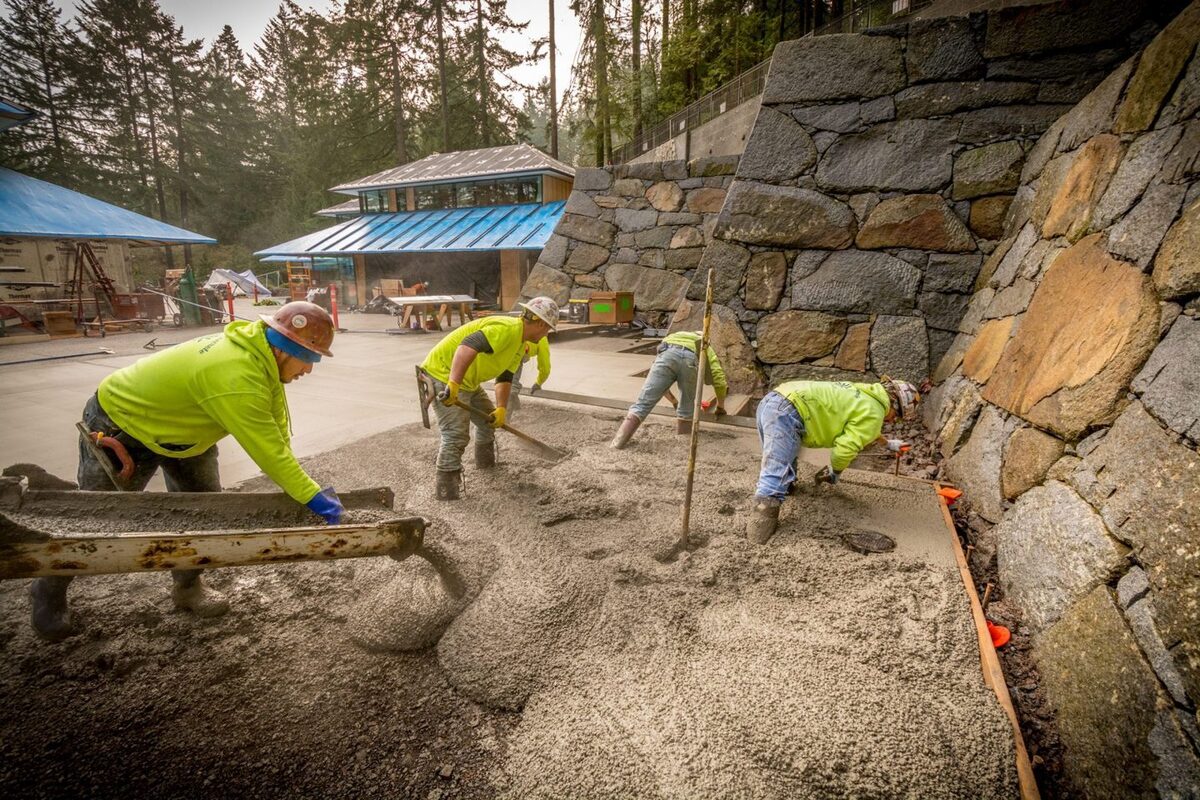
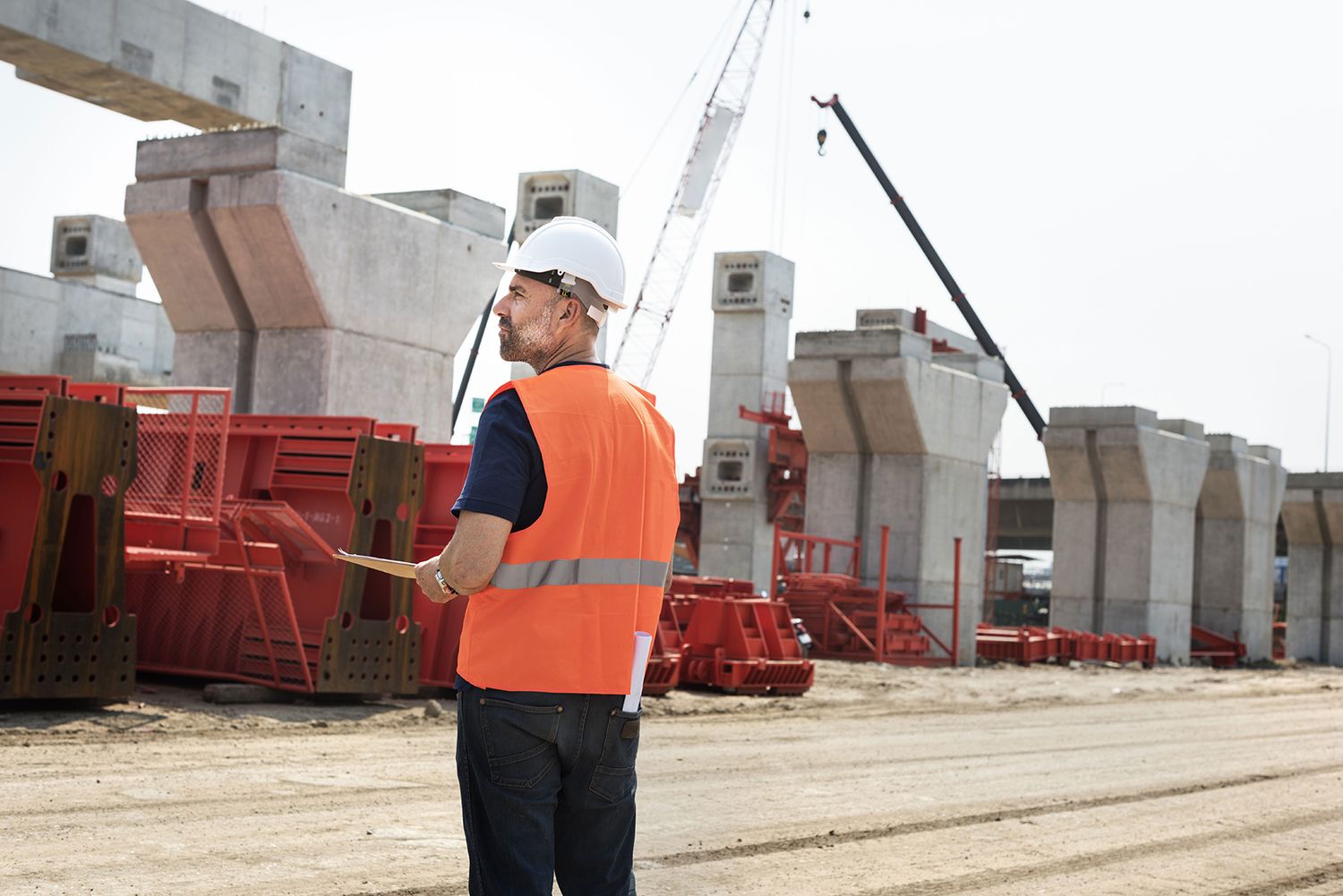

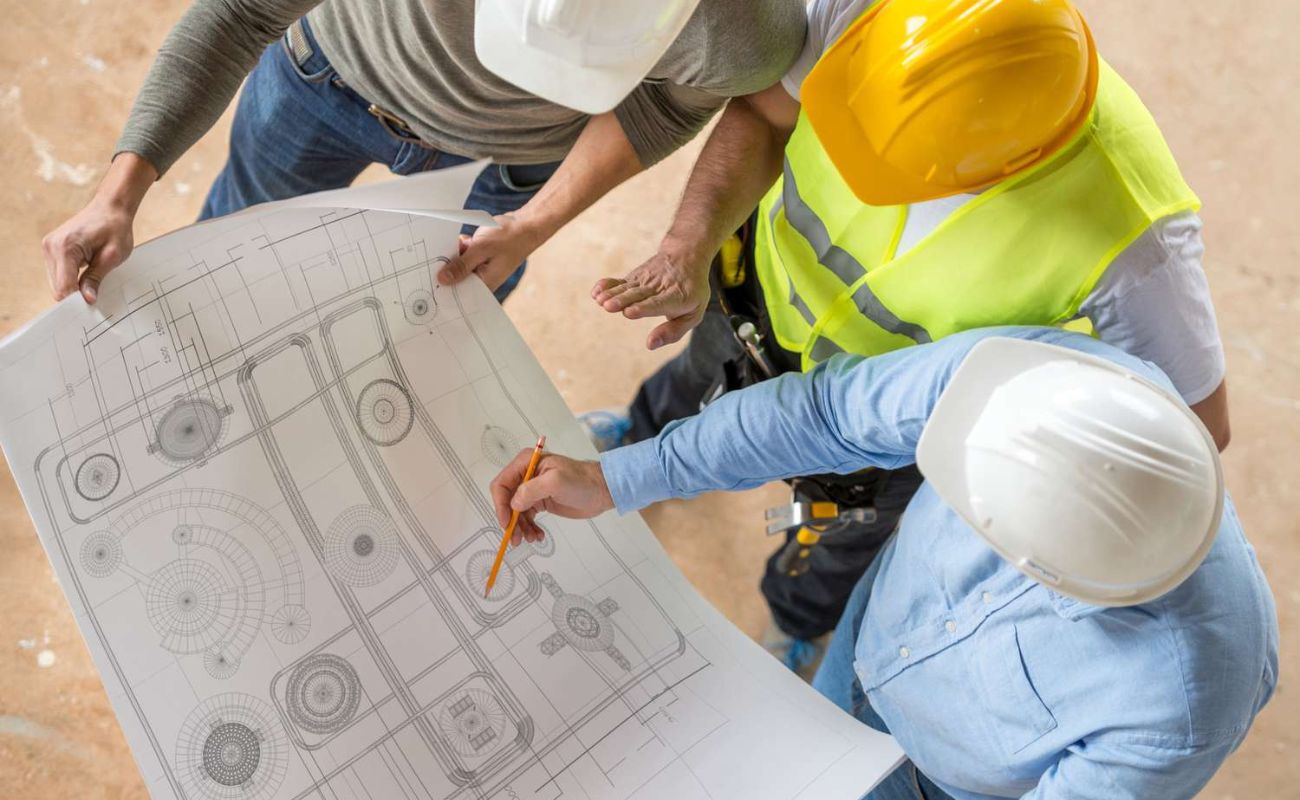

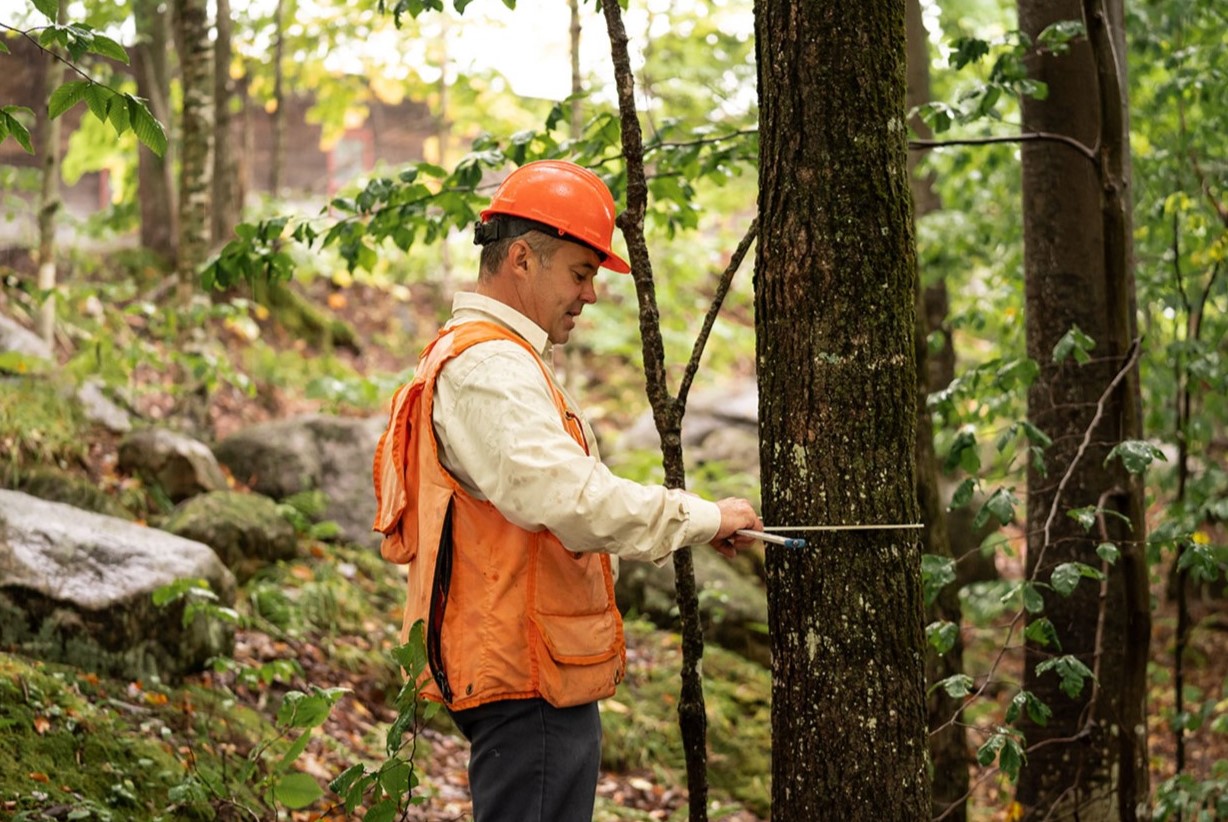


0 thoughts on “How Do You Get A Job In Construction”